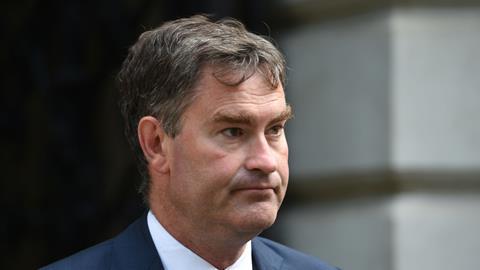Justice secretary David Gauke is expected to ignore calls for him to quit over his decision not to challenge the Parole Board's decision to release 'black cab rapist' John Worboys. This morning the High Court quashed the board's decision to release Worboys (now known as John Radford) and said a rule prohibiting information about proceedings being made public is unlawful.
On his first full day as sworn-in lord chancellor, Gauke told MPs on 19 January that, after taking legal advice, it would be inappropriate to proceed with a judicial review. He would, however, expand the government's transparency review to consider how Parole Board decisions can be challenged.
Gauke welcomed today's High Court judgment and congratulated the victims for bringing 'this unprecedented legal action'.
However, in a lengthy statement, the justice secretary defended his decision not to challenge the Parole Board's decision. He said: 'I took expert legal advice from leading counsel on whether I should bring a challenge. The bar for judicial review is set high. I considered whether the decision was legally rational - in other words, a decision which no reasonable Parole Board could have made. The advice I received was that such an argument was highly unlikely to succeed. And, indeed, this argument did not succeed.
'However, the victims succeeded in a different argument. They challenged that, while Ministry of Justice officials opposed release, they should have done more to put forward all the relevant material on other offending. They also highlighted very significant failures on the part of the Parole Board to make all the necessary inquiries and so fully take into account wider evidence about Worboys’s offending.
'I also received advice on the failure of process argument and was advised that this was not one that I as secretary of state would have been able to successfully advance. The victims were better placed to make this argument and this was the argument on which they have won their case. Indeed, the judgment suggests that, had I brought a case, the standing of the victims may have been compromised.’
He added: 'Given the very serious issues identified in this case, I can announce today that I intend to conduct further work to examine the Parole Board rules in their entirety. As a result of the work that has been completed to date, I have already decided to abolish rule 25 [prohibiting information being made public] and will do so as soon as possible after the Easter recess. This will enable us to provide for the Parole Board to make available summaries of the decisions they make to victims. In addition, I will bring forward proposals for Parole Board decisions to be challenged. I intend to consult on the detail of these proposals by the end of April alongside other proposals to improve the way that victims are kept informed about the parole process.'
Gauke said Professor Nick Hardwick's resignation as chair of the Parole Board 'is the correct decision in light of the serious failings outlined in today’s judgment'. Hardwick's resignation letter suggests his meeting with the justice secretary yesterday afternoon was tense.
Hardwick wrote: 'You told me that you thought my position was untenable ... I will not pass the buck to those who work under me. In these circumstances I inform you of my decision to resign with immediate effect.'
Shadow justice secretary Richard Burgon told the BBC's Daily Politics show this lunchtime that he was disappointed that Gauke had 'briefed the newspapers that he was going to be pursuing a judicial review, and now he seems to be paying the price for that... I don't think he should have briefed the papers in the first place about that'.




























57 Readers' comments